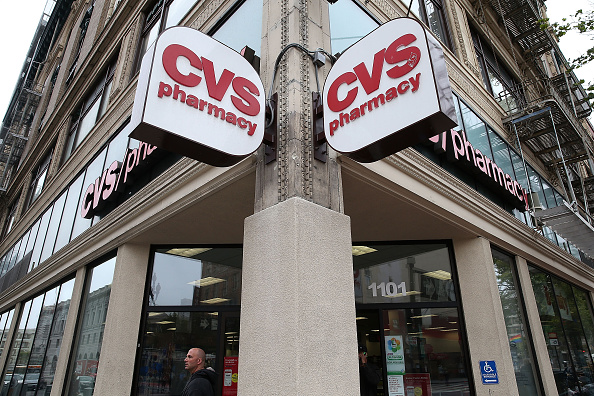
A small, woman-owned specialty pharmacy in San Francisco serving HIV-positive patients has won a case against CVS Caremark, but the pharmacy benefit manager refuses to pay, and now the case is public.
CVS Caremark owes Mission Wellness $3.6 million after an arbitrator ruled in favor of the small pharmacy that accused CVS of breach of contract, and the arbitrator ordered CVS to return 100% of the direct and indirect remuneration (DIR) fees recouped from Mission Wellness. DIR fees include any kind of remuneration Part D Plan Sponsors (PDPs) or their PBMs receive from any source after the point of sale that offsets the PDP’s costs. In this case, Silverscript was the plan sponsor and the point of sale applies to Mission Wellness.

Behavioral Health, Interoperability and eConsent: Meeting the Demands of CMS Final Rule Compliance
In a webinar on April 16 at 1pm ET, Aneesh Chopra will moderate a discussion with executives from DocuSign, Velatura, and behavioral health providers on eConsent, health information exchange and compliance with the CMS Final Rule on interoperability.
According to the lawsuit, CVS Caremark inaccurately assessed DIR fees agreed upon in the contract with Mission Wellness. In 2020, CVS recouped 150% of Mission Wellness’ net profit. And so while CVS was docking Mission Wellness’ pay when it was participating in Caremark’s Medicare Part D networks, the small pharmacy was losing money.
While Medicare Part D is a governmental prescription drug program for those aged 65 or older – called SilverScript, HIV patients qualify for Medicare regardless of age.
In arbitration documents made public this week, Mission argued that it was not reasonable for CVS to pay Mission a negative reimbursement rate under “take it or leave it” contractual terms, as this is not the contract they agreed upon. The arbitrator agreed, ruling that CVS failed to show adequate calculations for coming up with the fees it imposed.
“Caremark and SilverScript have profited at the expense of Mission Wellness, HIV patients and Medicare,” according to a news release from Mission Wellness on Tuesday.

A Deep-dive Into Specialty Pharma
A specialty drug is a class of prescription medications used to treat complex, chronic or rare medical conditions. Although this classification was originally intended to define the treatment of rare, also termed “orphan” diseases, affecting fewer than 200,000 people in the US, more recently, specialty drugs have emerged as the cornerstone of treatment for chronic and complex diseases such as cancer, autoimmune conditions, diabetes, hepatitis C, and HIV/AIDS.
It’s a rare occasion that arbitration between a small, minority-owned specialty pharmacy serving HIV patients and a pharmacy behemoth like CVS would be unsealed. Confidentiality agreements and “gag clauses” prevent the public from obtaining a window into the cases against pharmacy benefit managers. But this case was brought into the public eye after Mission Wellness filed a case in Arizona District Court asking a judge to confirm the arbitration award and force CVS to dish out the money it owes the pharmacy.
Jonathan Levitt, who represents Mission Wellness, said his firm Frier Levitt has helped clients win several such awards, which pharmacy giants such as CVS or Cigna pay following arbitration with specialty pharmacies. However, they are never able to talk about those wins publicly because they’re confidential.
Meanwhile, CVS Caremark said it had recouped DIR fees that Mission Wellness owed because the San Franscisco pharmacy didn’t follow adherence metrics, which show how well a drug is working for a patient. But Levitt claimed that Mission Wellness has the data to show they did follow adherence metrics. In particular, since the case involves HIV drugs for which they do blood testing to see if the drug is working, there is no question that Mission Wellness followed adherence metrics, Levitt said.
During arbitration, CVS Caremark failed to provide the adherence metrics they were basing their claims off of, according to Levitt.
CVS Health, which owns CVS Caremark, did not respond to request for comment.
The case represents a larger controversy around DIR fees which are a threat to independent pharmacies. “This isn’t unique to Mission Wellness. We invalidated Caremark’s DIR fees in entirety,” Levitt said.
Following the Federal Trade Commission’s announcement earlier this month that they’re investigating the “drug middleman industry,” involving pharmacy benefit managers, such as CVS Caremark, Levitt expects these victories against PBMs to be less shrouded in darkness .
“Everyone’s afraid to tell the FTC what’s going on because of confidentiality clauses and gag clauses, but this is exactly what the FTC is asking about,” Levitt said.
He hopes the victory shows that specialty pharmacies should be aware they have rights under federal law, that can be vindicated in a court of law.
The case is 2:22-cv-00967 in the District Court of Arizona.
Photo: Justin Sullivan, Getty Images












